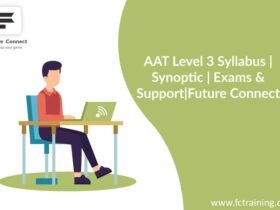5 guidelines for effective online assessment
Online assessment has been witnessing high adoption in recent times owing to the rising COVID-19 pandemic and the restrictions imposed due to lockdowns and temporary shutdowns of schools and colleges. The institutes were left with no other option than to adopt online methods of education. This includes various fields of education and management such as online classes, online assessment, admission, examination, evaluation, and others.
Further, the introduction and implementation of NEP 2020 are majorly focused on increasing the number of students gaining education across the country. This can be done by eliminating the physical and location boundaries and offering education online. Hence, colleges are beginning to offer e-learning courses and distance learning programs to students in remote locations.
This creates a need for conducting assessments and examinations of the students using online methods. They will be rewarded the degree or certificate from the institute only if the student attends courses and clears the exams with cutoff marks.
Problems faced by Institutes
Several institutes are now moving towards the adoption of online assessment and hence they are worried about its safety, authenticity, and fairness in exams. Unlike the traditional methods of exam conduction, the students are attempting the exam remotely and hence there is no human invigilator monitoring them throughout.
Further, making devices and software accessible to the people as well as maintaining the integrity of the institute is a major worry for them. It creates vulnerability among the institute regarding the usage of the online examination system.
Here are the five principles the institutes must follow for conducting a meaningful online assessment.
Practicality
Practicality is a very important factor when it comes to online assessment. The software is used by various individuals such as students, faculty members, teachers, and admin based on their role and job in the institute. Many students or faculty members might not be technically sound to use software efficiently in one go. Here practicality of the system comes into the picture.
The software should be such that it can be easily used by everyone. It must have intuitive nature and all the students and faculty members are able to use it with smoothness. They should be able to understand the complete format of the test and shouldn’t lag behind due to technical issues.
Further, the software should be affordable for the institutes economically. The exam should not last for too long such that it becomes difficult for the student to attempt. The system should offer efficient use of time and manpower reducing the institute’s workload.
Reliability
Reliability refers to how much the system can be trusted by the teachers and students. It means that the assessment tool examines the students and rates them with a consistent algorithm that remains fair to the students for every exam. It means that the feedback received from the system should be reliable every time and based on their performance.
The software should not work in a faulty way or give wrong results to the students. The students should rely on the system even if they are facing personal problems or health issues. Further, the system should not create bias among the students. If the teacher makes use of the software and it should be made sure that there isn’t any inequality or unfairness in evaluation.
Further, the exam should be conducted in such a way that every student is able to access it with ease. Several students face internet issues at their locations. A high bandwidth exam won’t be suitable for them. Also, the nature of the test, its understandability of questions, instructions, and format must be easy for everyone.
Validity
Validity is an important factor in online assessment. All the data, information, process, evaluation, and other aspects of online assessment are valid. It makes sure that the test is capable of rightly measuring what it is supposed to measure. It makes sure that the concept, idea, conclusion are in alignment with the real world.
- Content Validity– This implies that the questions, options, and already-fed answers are valid socially, morally, and emotionally for the students and institutes. It ensures that the answers are checked in a correct way to ensure fair practices.
- Criterion Validity– This includes the various criteria set by the faculty members to check answers, give grades, and feedback to the students.
- Construct Validity– It ensures that the construct of the examination is set correctly as per the norms and standards and is valid throughout.
- Consequential Validity– This gives an idea about the outcomes of the test are valid. It tells whether the consequences of a test are positive or negative.
- Face Validity– It is a way of validating by applying subjective and superficial assessment to check if the test is able to measure what it claims to measure.
Authenticity
The authenticity of online assessment software is defined by the context, meaning, and relevancy of the test. Natural language and have the meaning as well as interesting topics. It should be a replica of the real-life experiences around.
Washback
This principle gives an idea about what impact the assessment test has on the teaching and learning atmosphere within the classrooms. It can either have a negative or positive outcome depending on various factors in the test.
The positive outcome or washback is something that was expected from the test from the beginning. Whereas negative impact known as negative washback refers to something that shouldn’t have happened. Instructional planning can help the institutes to have a positive washback in the test.
Conclusions-
Various ERP solutions are used by the institutes to conduct online assessments such as learning management systems, student information software, and others. All of them must have these five principles for conducting an online assessment with high accuracy, ease, and authenticity.








Leave a Reply